Liz Truss’ cabinet dominated by anti-LGBTQ+ ministers with appalling voting records
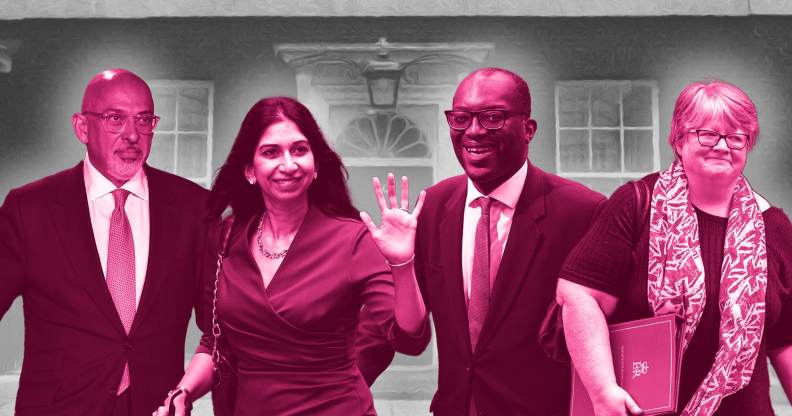
Nadhim Zahawi, Suella Braverman, Kwasi Karteng and Therese Coffey. (Getty)
Liz Truss’ cabinet includes ministers who are fiercely opposed to trans rights and those who voted against same sex-marriage.
The new prime minister announced her cabinet appointments on Tuesday (7 September), with Thérèse Coffey, Kwasi Kwarteng, James Cleverly and Suella Braverman all in key roles.
And the outlook is grim – Truss’ cabinet is dominated by ministers who have voted against LGBTQ+ rights, as well as those who have traditionally voted in favour of advancing LGBTQ+ rights but embraced anti-trans talking points in recent years. This includes Nadhim Zahawi, appointed chancellor of the Duchy of Lancaster and minister for equalities.
Also worth noting is that not a single LGBTQ+ Conservative MP made it into Truss’ cabinet – the party has 26 openly LGBTQ+ MPs.
That’s not to say it’s all bad – some members of the new cabinet have proven themselves to be strong advocates for the LGBTQ+ community, and it marks the first time there are no white men in the top four positions.
Despite that, the cabinet largely appears to be dominated by social conservatism and anti-LGBTQ+ sentiment.
Thérèse Coffey, who opposes marriage equality, appointed health secretary and deputy PM by Liz Truss
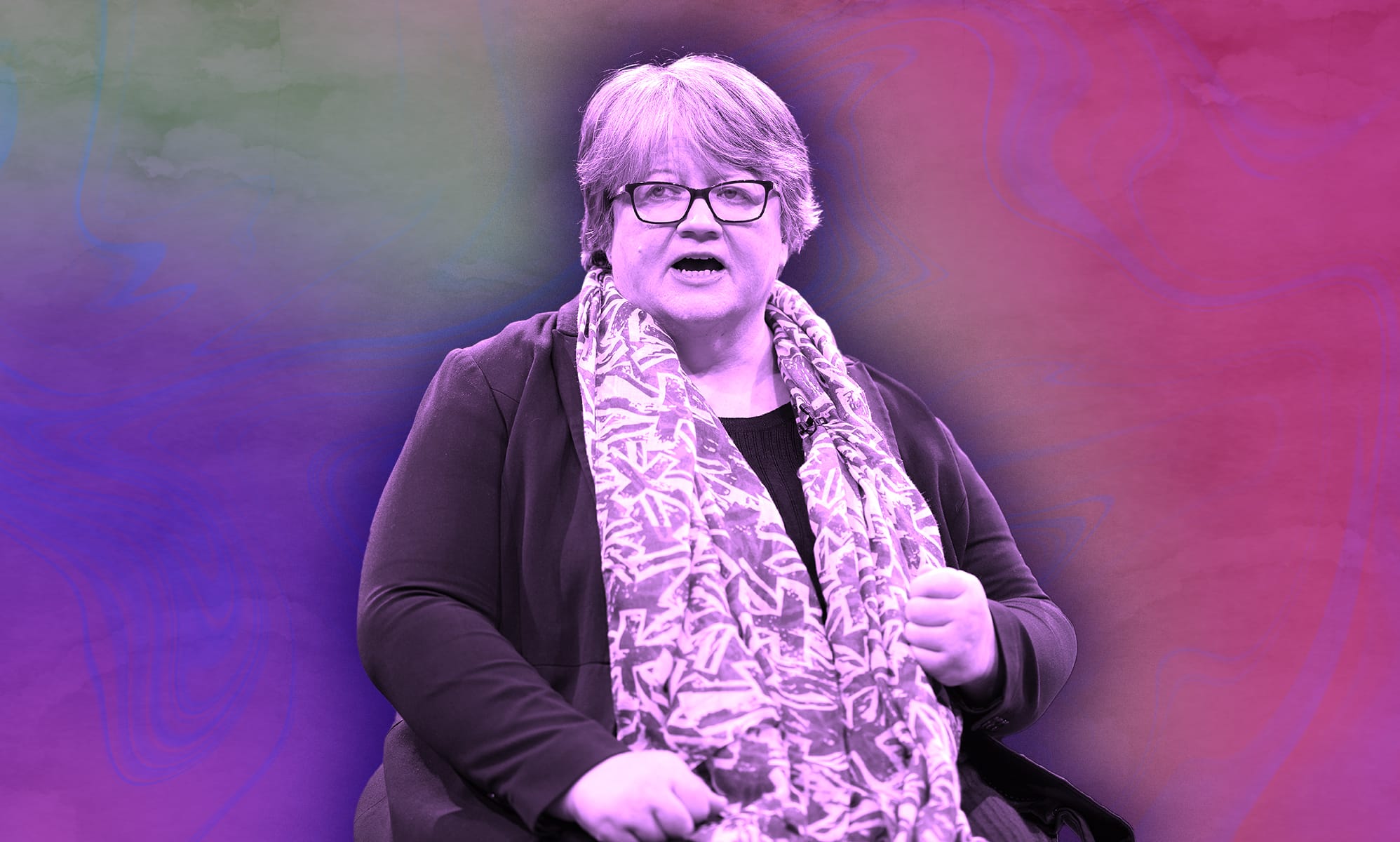
Thérèse Coffey. (Getty)
Liz Truss has appointed Thérèse Coffey as health secretary and deputy prime minister in a move that has caused some alarm among LGBTQ+ people.
Coffey is a close friend of Truss and was heavily involved in her leadership campaign. She previously served as work and pensions secretary in Boris Johnson’s cabinet.
She is a devout Catholic, and her faith appears to have informed her views on LGBTQ+ rights. She has voted consistently against same-sex marriage, defending her position as recently as 2020.
Notably, Coffey has been quieter on trans rights – but it seems likely she will wade into the culture wars soon in her new position as health secretary.
Coffey, who is also opposed to abortion, could play a significant role in LGBTQ+ people’s lives as health secretary – she will be responsible for handling the monkeypox outbreak.
Chancellor Kwasi Kwarteng and foreign secretary James Cleverly have opposing views
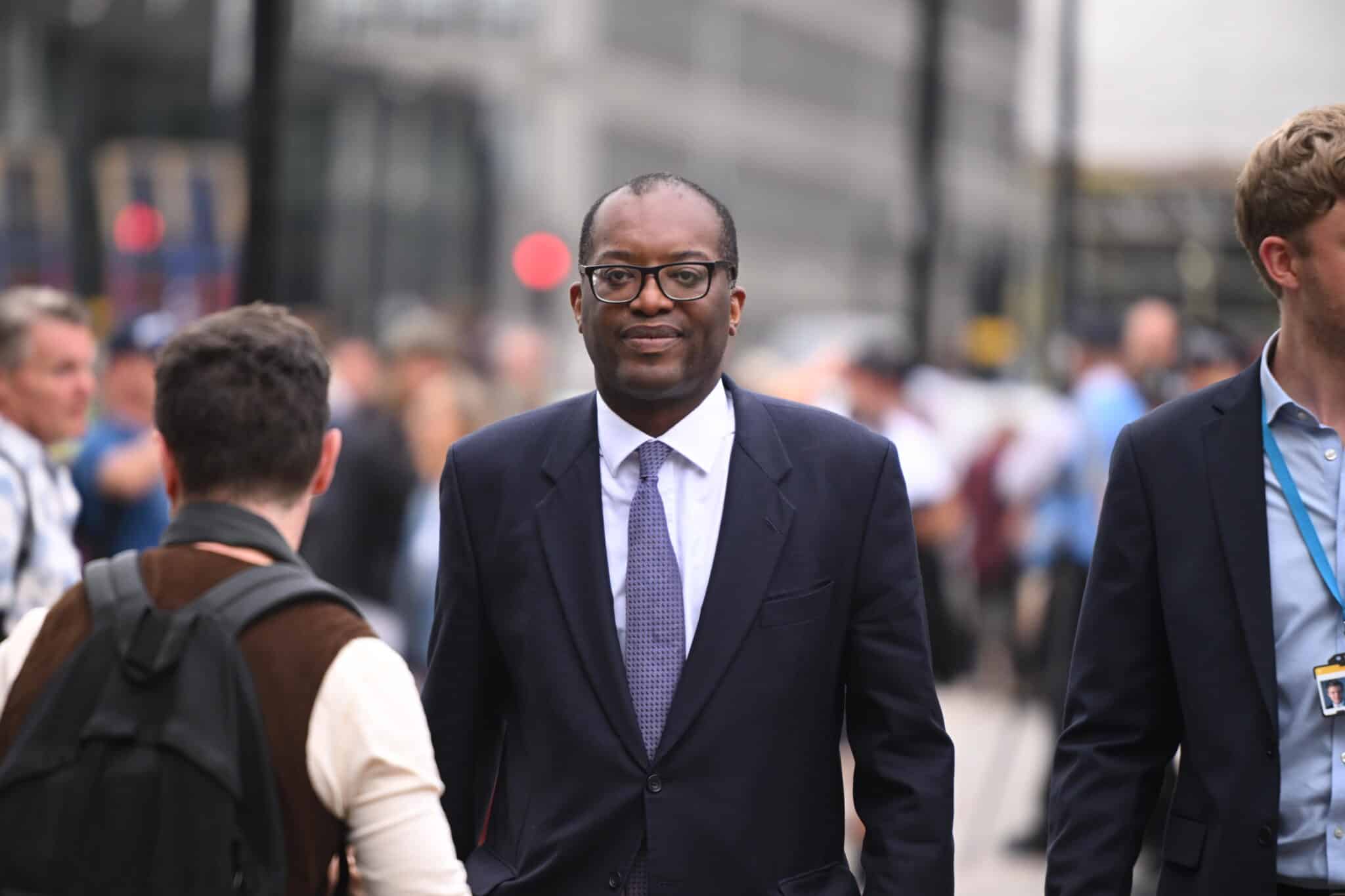
Kwasi Kwarteng arrives at the Conservative Campaign Headquarters (CCHQ) ahead of the prime minister announcement on 5 September, 2022 in London. (Leon Neal/Getty)
Like so many of his cabinet colleagues, chancellor Kwasi Kwarteng has voted against same-sex marriage. But he has been absent from votes on the subject since 2013, so it’s not easy to gauge whether he has changed his views.
In 2022 he faced criticism when he insisted there wasn’t a sexist culture in Westminster after Tory MP Neil Parish resigned when he was found to be watching porn in the commons.
“I don’t think there’s a culture of misogyny,” Kwarteng told Sky News. He later admitted there were a few “bad apples” but insisted that didn’t mean there was an issue with “male entitlement”.
On the flip side, foreign secretary James Cleverly has generally shown himself to be an ally to LGBTQ+ people. He supported same-sex marriage as far back as 2005, writing in a blog post at the time that allowing gay couples to marry “takes nothing away from heterosexual marriage”.
In 2018, Cleverly responded to a trans woman on Question Time who opened up about her experiences and called for gender recognition reform.
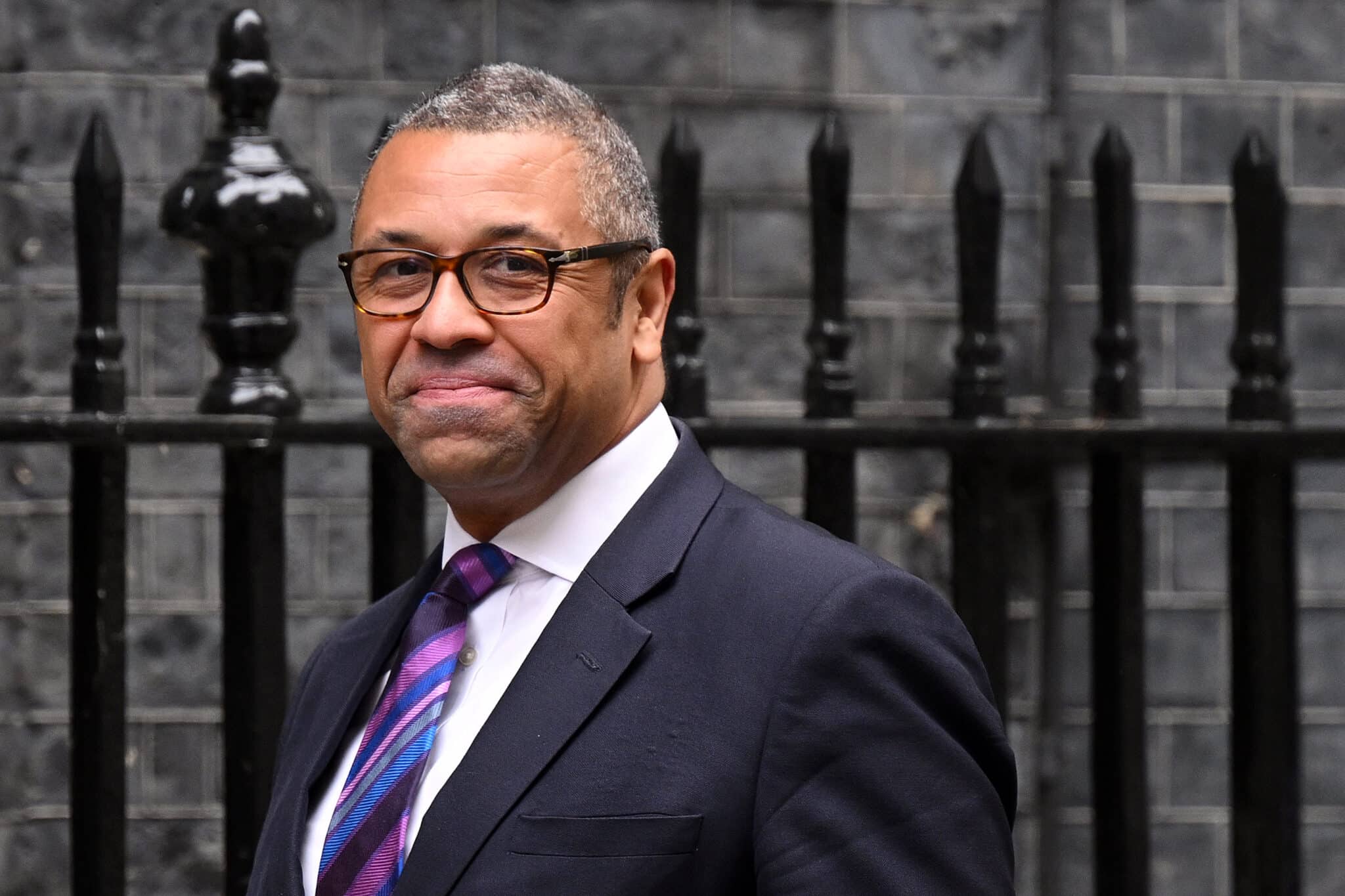
James Cleverly, education secretary arrives for a cabinet meeting at 10 Downing Street. (Leon Neal/Getty Images)
“I am a Conservative because I believe in personal choice, personal freedom, personal responsibility, and I think this is the natural evolution of those principles,” Cleverly said.
“If a sexual predator wishes to enter a toilet to attack a woman, there’s no need to have any recognition or certificate to do so, that can happen already. If that’s what we’re worried about, we should look at ways of protecting women, rather than dance around the issue and try to make an already-difficult issue even more difficult.”
Home secretary Suella Braverman has attacked trans rights
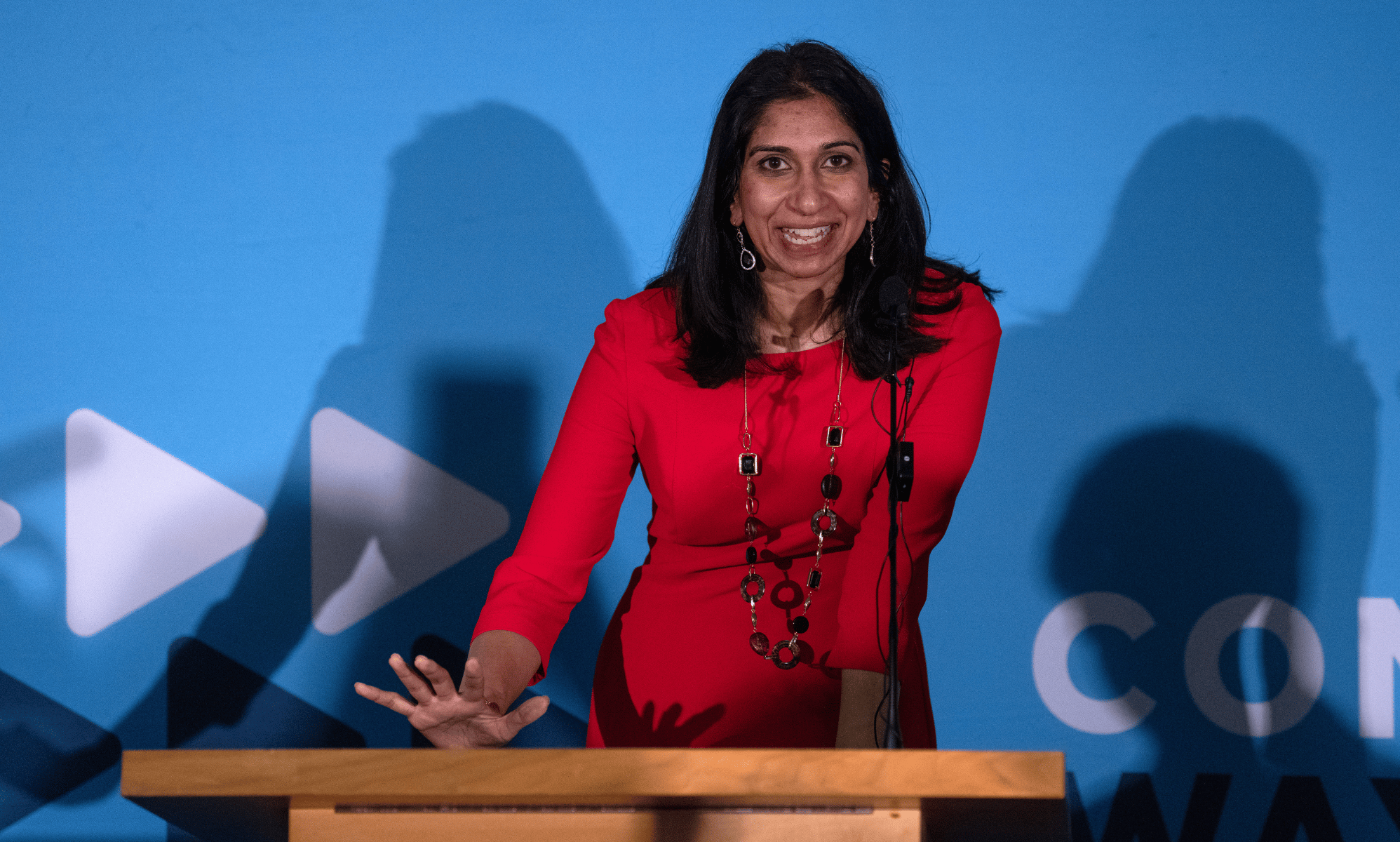
Suella Braverman was the first person to launch her Tory leadership campaign run, and she used anti-trans rhetoric to gain support – setting the tone for the rest of the race. (Getty)
Rounding out Liz Truss’ top team is Suella Braverman, a former leadership hopeful who served as attorney general in Boris Johnson’s cabinet.
Braverman’s appointment can only spell trouble for LGBTQ+ people. She failed to make it past the second ballot of Tory MPs in the leadership race, but the anti-trans rhetoric she brought to the table lingered.
Braverman has suggested the government could try to stop Scotland from reforming its gender recognition laws because it would create a “two-tier system” in the UK.
She made those comments seemingly without any awareness that she voted to uphold a two-tier system in 2019 when she voted against bringing Northern Ireland in line with the rest of the UK by extending equal marriage to the region.
Braverman has said there is a “collective frenzy” about trans rights in the UK which has led to the “basics of biology” being turned “upside down”.
She has also baselessly claimed schools are “indoctrinating children” and that teachers are “socially transitioning” pupils.
Nadhim Zahawi as equalities minister is a worry for LGBTQ+ people
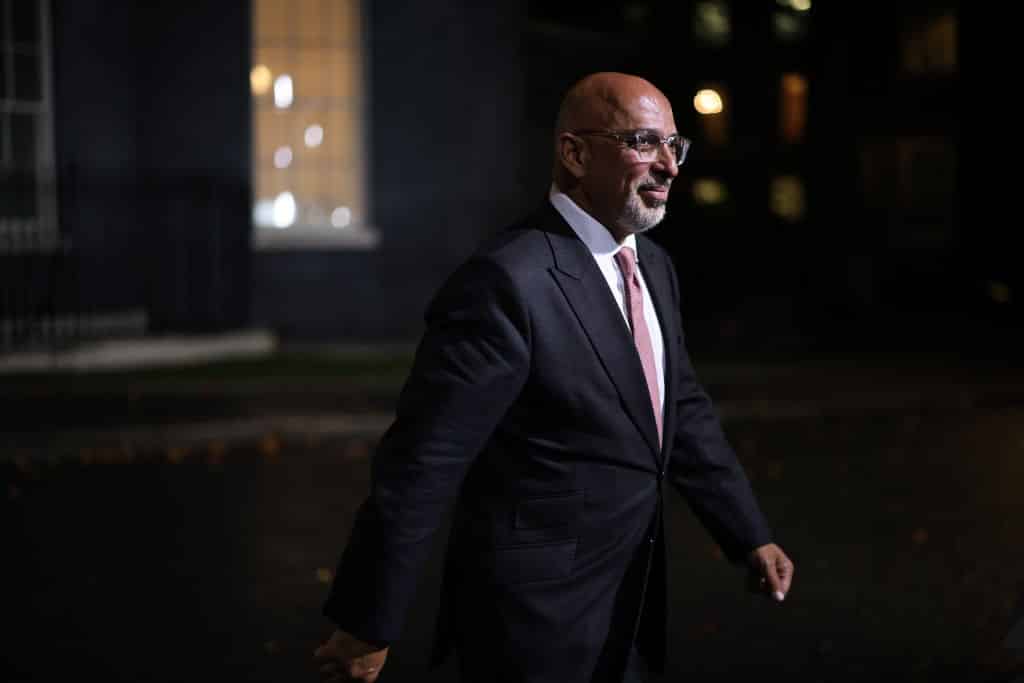
Nadhim Zahawi leaving No 10 amid Liz Truss’ reshuffle. (Getty)
Outside of Truss’ top four appointments, the one that’s perhaps most relevant to LGBTQ+ rights is the equalities minister post.
There was a bolt of worry when Truss announced Nadhim Zahawi, former education secretary, would take the role.
During his own leadership bid, Zahawi sparked fears of a new Section 28, banning the promotion of homosexuality in schools. He said he would focus on “letting children be children, protecting them from damaging and inappropriate nonsense being forced on them by radical activists”.
As equalities minister, Zahawi will likely be tasked with advancing a long-promised ban on conversion therapy – however it remains to be seen whether that will even end up on the agenda under Truss’ leadership.
LGBTQ+ rights aren’t exactly central to Truss’ cabinet
The rest of the cabinet isn’t all that LGBTQ+ friendly either.
Ben Wallace continues as defence secretary, a role he also held under Johnson. Before entering politics, he served in the British Army. As an MP, he has voted against same-sex marriage, and he was absent for the vote on extending equal marriage to Northern Ireland in 2019.
Simon Clarke has been promoted to levelling up secretary – he voted against extending same-sex marriage to Northern Ireland, claiming he supported same-sex marriage, but did not agree with English MPs imposing “issues of conscience” on the people of NI.
Others cabinet members who have voted against LGBTQ+ rights include business and energy secretary Jacob Rees-Mogg, environment secretary Ranil Jayawadena and culture secretary Michelle Donelan – but it’s not just the voting records of ministers we should be looking at.
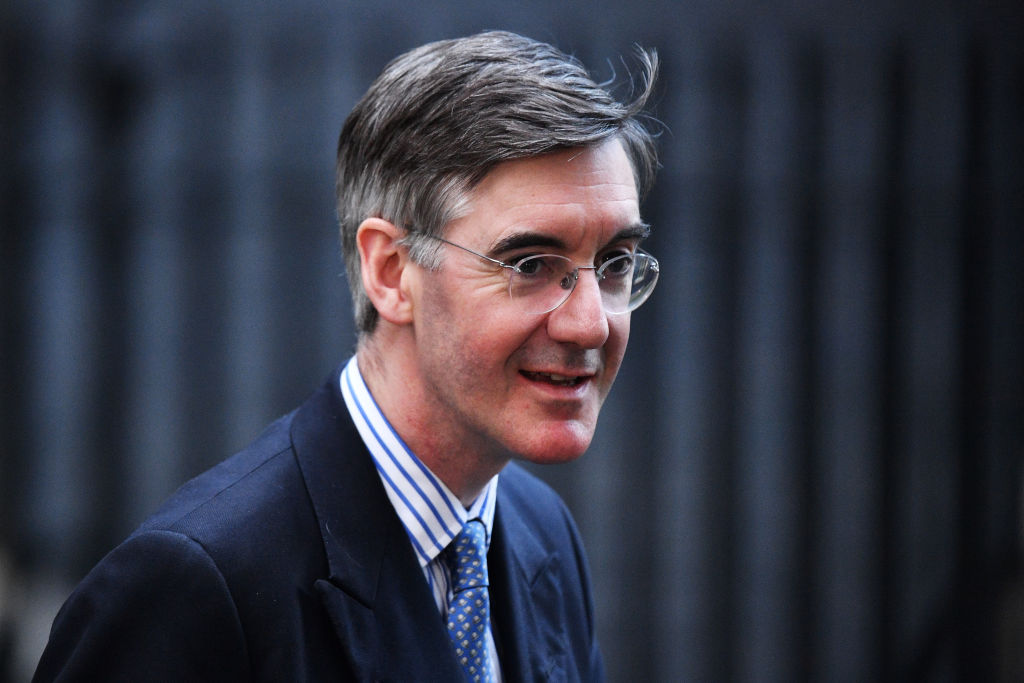
Jacob Rees-Mogg. (Leon Neal/Getty)
Some were absent for votes on LGBTQ+ rights, or they hadn’t been elected when votes took place, but they’ve made their positions clear over the years.
Penny Mordaunt, the new leader of the house, has been seen as a staunch supporter of LGBTQ+ rights for some time, but her failing leadership bid saw her capitalise on anti-trans talking points in a desperate bid to win support. She claimed she never supported plans to reform the Gender Recognition Act (GRA) and insisted trans women should never be seen as the same as cis women.
Kemi Badenoch, who has been appointed trade secretary, has never voted on same-sex marriage, but she was condemned for “utterly failing” LGBTQ+ people during her stint as junior equalities minister in Boris Johnson’s cabinet.
She faced backlash over a secret meeting with anti-trans pressure group LGB Alliance and she was allegedly instrumental in setting up a meeting between government officials and an organisation that advocates for conversion therapy.
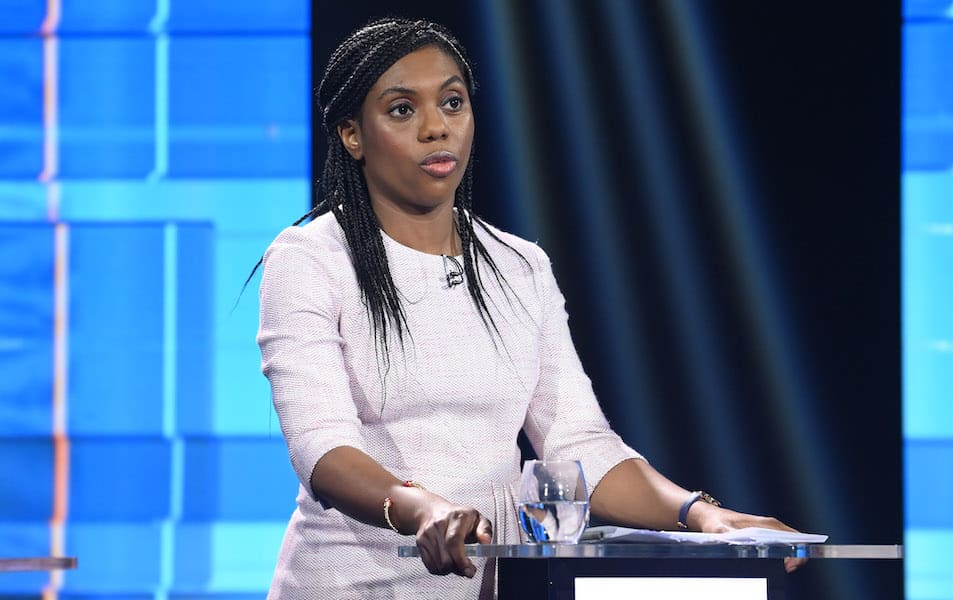
Kemi Badenoch speaks during Britain’s Next Prime Minister: The ITV Debate on 17 July. ( Jonathan Hordle/ITV via Getty)
Chief secretary to the treasury Chris Philp voted to extend same-sex marriage to Northern Ireland, but he also defended Boris Johnson’s inflammatory historic comments in which he called gay men “bum boys”.
Thankfully, some of Truss’ cabinet members do have a strong track record of supporting LGBTQ+ rights. Justice secretary Brandon Lewis, work and pensions secretary Chloe Smith, education secretary Kit Malthouse, Northern Ireland secretary Chris Heaton-Harris and attorney general Michael Ellis have strong voting records on LGBTQ+ rights.
However, what remains to be seen is whether they will continue supporting LGBTQ+ rights in a government that is dominated by ministers who favour anti-LGBTQ+ sentiment.

